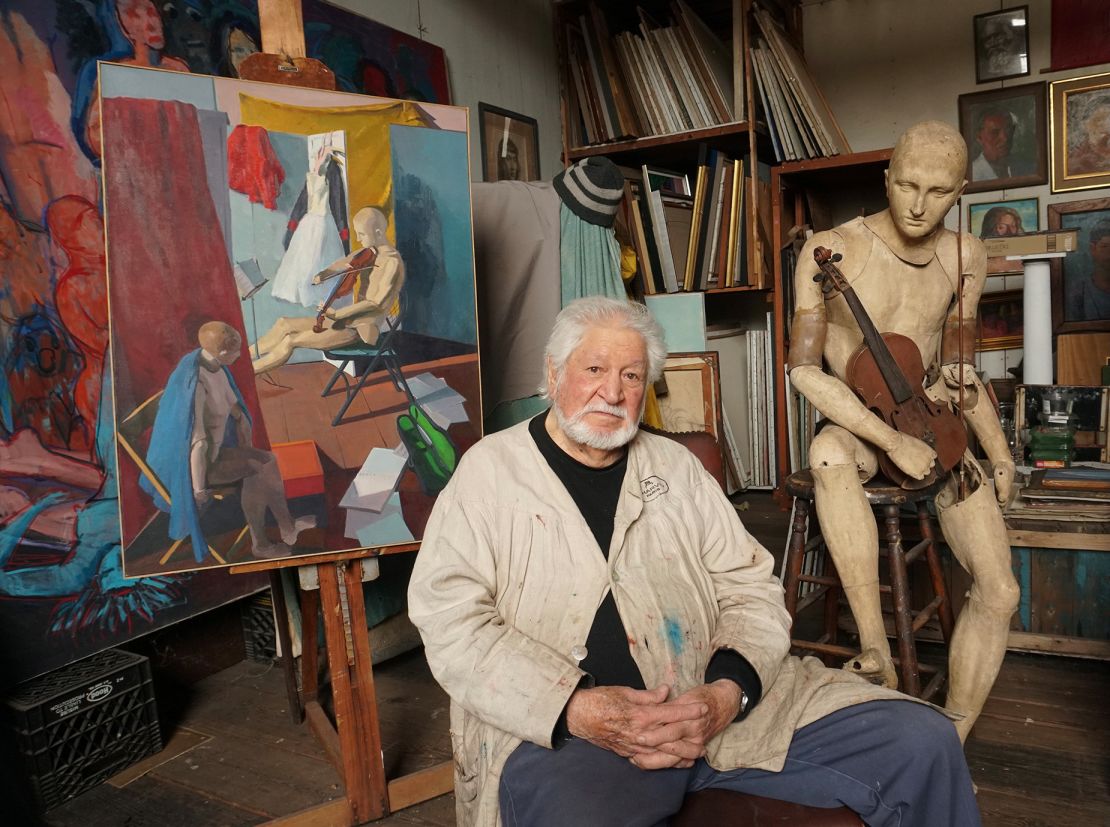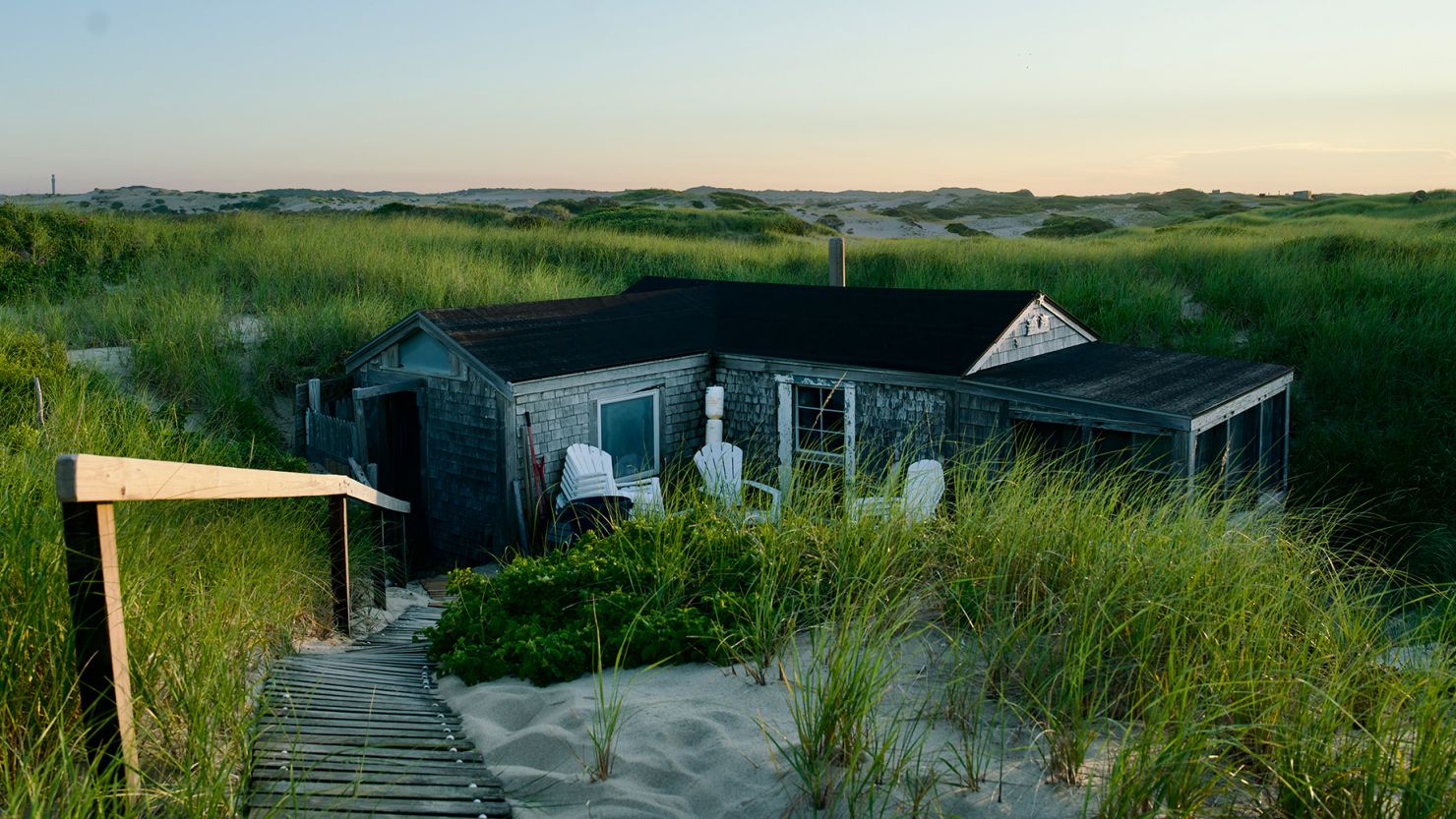Artist Salvatore Del Deo and his family are back in the dune shack they’ve occupied and cared for on Cape Cod National Seashore for nearly 80 years.
An agreement has been reached with the National Park Service after the artist, 95, was evicted from the historic shack this summer, according to his son Romolo Del Deo, who spoke to CNN about the deal.
Through lawyers acting pro bono on behalf of the Del Deo family with cooperation from the Department of the Interior (DOI), the Del Deos now have five more years in the shack through a special use permit under which they will pay rent and take care of the structure.
The negotiations butted up against what looked like an imminent federal government shutdown, Romolo Del Deo said, and the DOI and National Park Service rangers “worked very proactively to, in a matter of a few days, wrap everything up, restore our ability to get into the shack … literally right up to the wire of when the government was potentially shutting down.”
“It really warms my heart because we were kind of devastated by the chain of events earlier in the year, and it was a nice turn,” he said. “It was a nice change of course, and we’re all really grateful.”
The National Park Service confirmed that an agreement was signed on September 29, and the Del Deo family was issued a five-year special use permit for the shack. It’s officially known as the Chanel Shack after its original owner, Jeanne “Frenchie” Chanel.
At the end of that period, the family will be required to apply and demonstrate that they are the best caretakers of the shack, Del Deo said, which he feels is reasonable.
For his father, the extension is a chance to spend more time in a place where he’s deeply connected. “He’s 95 and this takes him to 100 and God bless him, I hope that we’re celebrating his 100th birthday out there and applying for an extension of an ability to stay there.”
The family was planning to visit the shack on Wednesday to celebrate the birthday of the late Josephine Del Deo, Romolo’s mother and Salvatore’s wife, who was instrumental in the establishment of the seashore as a national park. “And if the weather is good, he plans to paint right on the surf, as he’s been doing his whole life.”

Historic dune shacks
Roughly one third of Cape Cod National Seashore is coastal dunes.
A collection of dune shacks make up the Peaked Hill Bars Historic District, where the Chanel Shack is located. The eviction notice for Salvatore Del Deo came shortly before the National Park Service announced a leasing program for eight other dune shacks.
The park service opened those eight historic properties to 10-year lease proposals, according to their website, and moved to make them available to new prospective occupants – a plan that has earned criticism from some locals. The Chanel Shack wasn’t among those for lease, but it could have been part of a future offering.
The area has a deep history as a haven for artists and writers.
“Now that we’re done with all of this politics, all of this struggle to save the shack, we’re kind of going back to what we do, why we’re there, which is to make art and to celebrate the place,” Del Deo said.
The original Chanel shack dates back to 1942, and Salvatore Del Deo befriended the original owner, “Frenchie” Chanel, several years later. He was among a number of people who helped Chanel maintain the shack and nurture injured seabirds back to health long before there were veterinary services or wildlife rescue organizations in the area, his son said.
“She became family, and when my parents met and married, they honeymooned in her shack, and that was in 1953.”
The family cared for Frenchie and her shack for decades and when she passed “she essentially handed it over to us and we have taken care of it ever since,” Del Deo said.
The dune shack’s habitable season runs April through November, Del Deo said, and the lifestyle is rustic – with no electricity or indoor plumbing.
The shacks represent a treasured tradition of coexisting and drawing inspiration from the natural world.
“All of the dune dwellers, all of the people in our community, we all love our shacks. And in my case, I’ve literally grown up there since I was a baby,” Del Deo said. “And we’re deeply attached to them, and caring for them, and helping them survive a really perilous existence on the Northeast Atlantic coast.”
CNN’s Eli Masket contributed to this report.
